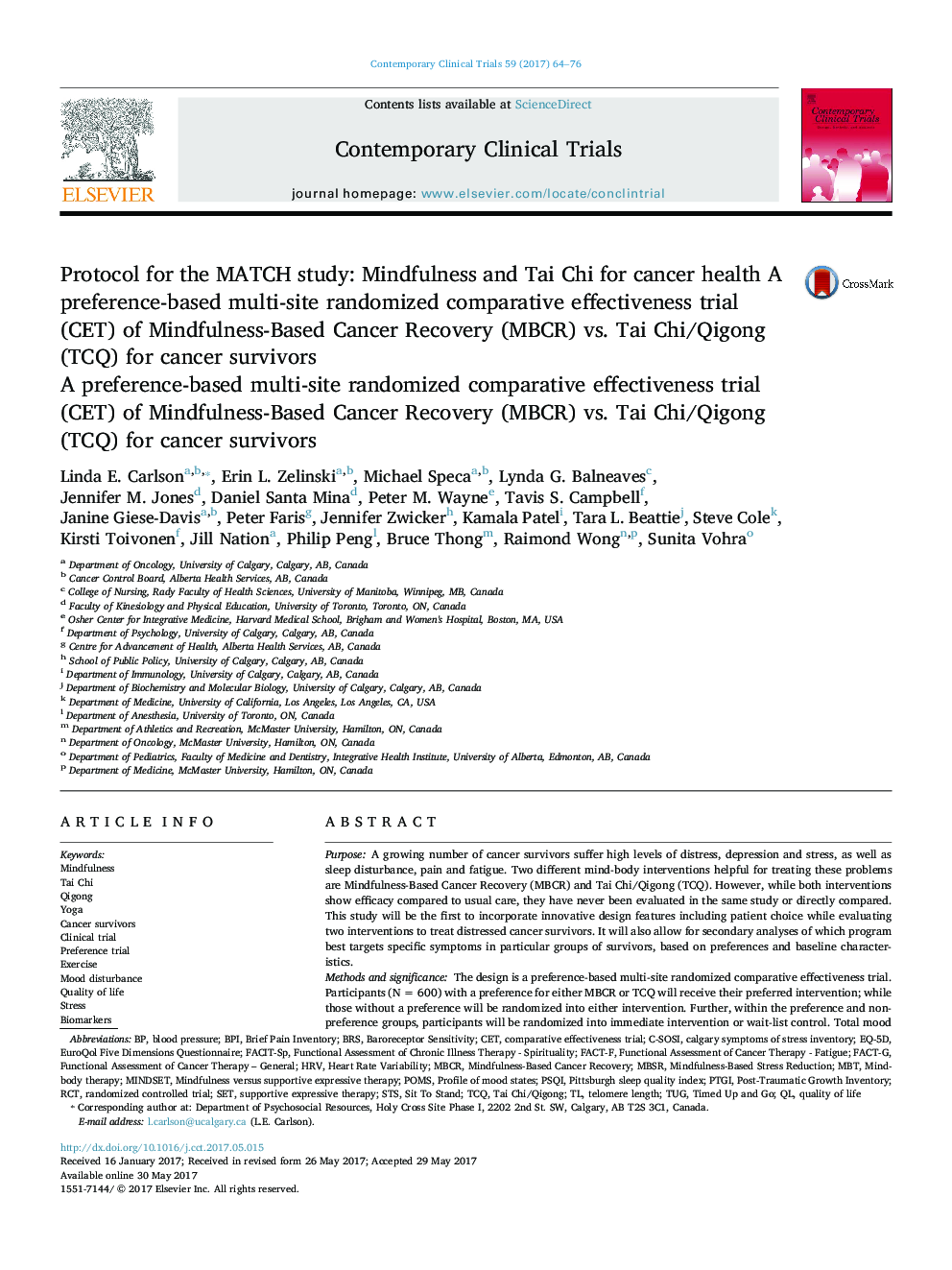| Article ID | Journal | Published Year | Pages | File Type |
|---|---|---|---|---|
| 5678604 | Contemporary Clinical Trials | 2017 | 13 Pages |
Abstract
The design is a preference-based multi-site randomized comparative effectiveness trial. Participants (NÂ =Â 600) with a preference for either MBCR or TCQ will receive their preferred intervention; while those without a preference will be randomized into either intervention. Further, within the preference and non-preference groups, participants will be randomized into immediate intervention or wait-list control. Total mood disturbance on the Profile of mood states (POMS) post-intervention is the primary outcome. Other measures taken pre- and post-intervention and at 6-month follow-up include quality of life, psychological functioning, cancer-related symptoms and physical functioning. Exploratory analyses investigate biomarkers (cortisol, cytokines, blood pressure/Heart Rate Variability, telomere length, gene expression), which may uncover potentially important effects on key biological regulatory and antineoplastic functions. Health economic measures will determine potential savings to the health system.
Keywords
Mind-body therapyMBTFACT-GPSQIRCTEQ-5DBPIMBSRBRSSTSQuality of lifeHRVPOMsRandomized controlled trialMood disturbanceStressCETCancer survivorsSit to standTai ChiTUGSETBaroreceptor sensitivityMindfulnessMindsetTimed Up and GoPittsburgh sleep quality indexTelomere lengthBlood pressurebrief pain inventoryProfile of Mood StatesBiomarkersheart rate variabilityexerciseQigongClinical trialMindfulness-based stress reductionYoga
Related Topics
Health Sciences
Medicine and Dentistry
Medicine and Dentistry (General)
Authors
Linda E. Carlson, Erin L. Zelinski, Michael Speca, Lynda G. Balneaves, Jennifer M. Jones, Daniel Santa Mina, Peter M. Wayne, Tavis S. Campbell, Janine Giese-Davis, Peter Faris, Jennifer Zwicker, Kamala Patel, Tara L. Beattie, Steve Cole, Kirsti Toivonen,
